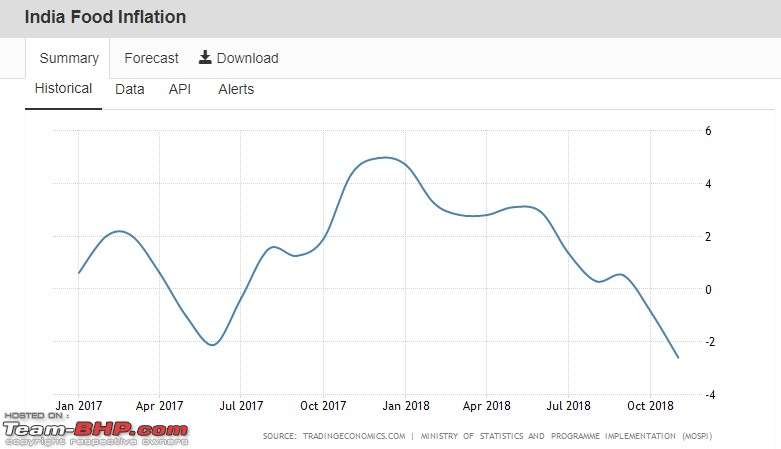| Re: Understanding Economics
Gita Gopinath appointed IMF Chief Economist https://economictimes.indiatimes.com...w/66031877.cms Quote:
Gita Gopinath has been named as Chief Economist of the International Monetary Fund (IMF), becoming the second Indian to be appointed to the position. Former RBI Governor Raghuram Rajan had served as Chief Economist of the IMF. Gopinath has authored some 40 research articles on exchange rates, trade and investment, international financial crises, monetary policy, debt and emerging market crises.
Born in December 1971 to Malayalee parents, Gita had her schooling in Calcutta and graduated from the Lady Shri Ram College of Commerce in Delhi. She did Masters from the Delhi School of Economics as well as from the University of Washington. In 2014, she was named one of the top 25 economists under 45 by the IMF and was chosen as a Young Global Leader by the World Economic Forum in 2011.
| Quote:
Originally Posted by Samurai  But the debt of that order is bound to hurt us hard, especially when a clueless man is in charge of US economy. |
This article explores the risks in global economy: https://economictimes.indiatimes.com...w/66013796.cms Highlights:
- Key risk factor is voracious borrowing by corporations and emerging market economies
- Debt held by S&P 500 corporations has risen to 1.5 times earnings since 2010, near peaks that preceded past recessions.
- The typical privately-held corporation purchased by private equity investors in that time is leveraged to six times earnings, twice what a ratings agency would consider junk
- A drop in stock prices back to their historical averages from current dizzying heights would eliminate $10 trillion of US household wealth, slashing consumer spending by about $400 billion, and cutting two percentage points off GDP growth
- When the American markets start feeling it, the results are likely be very different from 2008. Corporate meltdowns rather than mortgage defaults, and bond and pension funds affected before big investment banks.
- Neither the Federal Reserve nor Congress are in a position to do much to respond, since there is little room to cut interest rates, and the government deficit and debt are high
- Central bank balance sheets went from $5 trillion to $17 trillion in the last decade, swelling the value of global markets to $290 trillion, or a record 360 percent of global Gross Domestic Product
Last edited by SmartCat : 1st October 2018 at 23:39.
| 



















